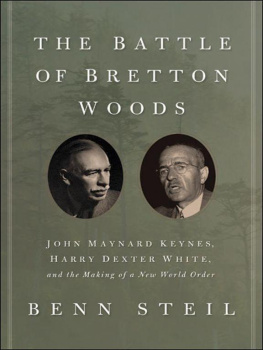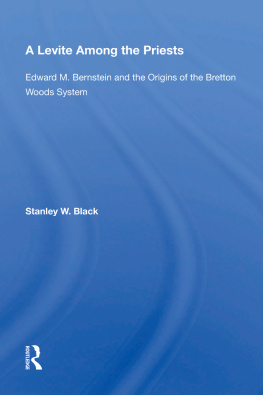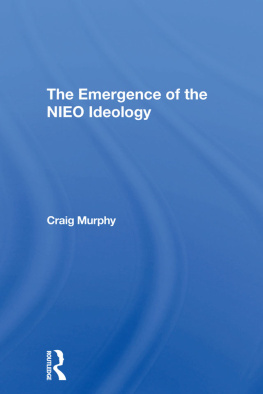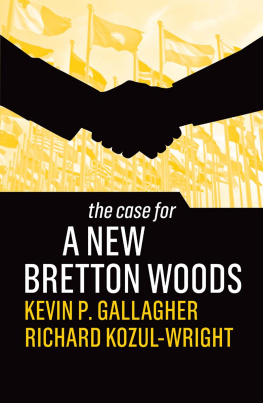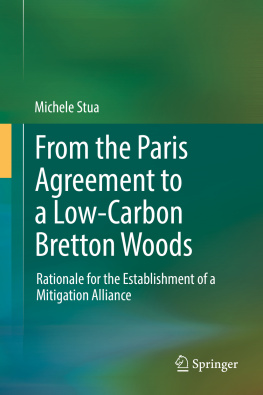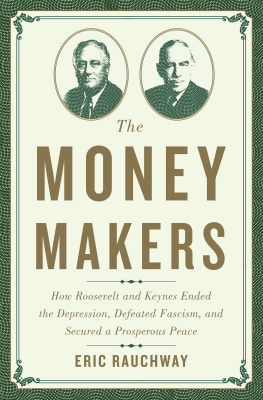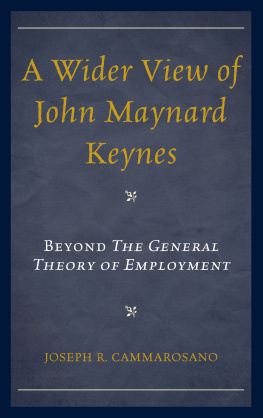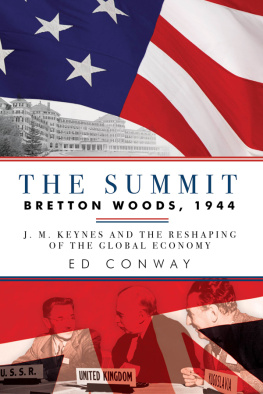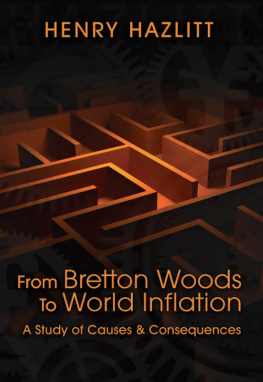THE BATTLE OF BRETTON WOODS

Copyright 2013 by Benn Steil
Requests for permission to reproduce material from this work should be sent to Permissions, Princeton University Press
Published by Princeton University Press, 41 William Street, Princeton, New Jersey 08540
In the United Kingdom: Princeton University Press, 6 Oxford Street, Woodstock, Oxfordshire OX20 1TW
press.princeton.edu
All Rights Reserved
Library of Congress Cataloging-in-Publication Data
Steil, Benn.
The battle of Bretton Woods : John Maynard Keynes, Harry Dexter White, and the making of a new world order / Benn Steil.
p. cm.
A Council on Foreign Relations Book.
Includes bibliographical references and index.
ISBN 978-0-691-14909-7 (hbk. : alk. paper) 1. Monetary policyHistory20th century. 2. International financeHistory20th century. 3. United Nations Monetary and Financial Conference (1944 : Bretton Woods, N.H.) 4. Keynes, John Maynard, 1883-1946. 5. White, Harry Dexter, 18921948. I. Title.
HG255.S837 2013
339.5'3dc23
2012035709
British Library Cataloging-in-Publication Data is available
The Council on Foreign Relations (CFR) is an independent, nonpartisan membership organization, think tank, and publisher dedicated to being a resource for its members, government officials, business executives, journalists, educators and students, civic and religious leaders, and other interested citizens in order to help them better understand the world and the foreign policy choices facing the United States and other countries. Founded in 1921, CFR carries out its mission by maintaining a diverse membership, with special programs to promote interest and develop expertise in the next generation of foreign policy leaders; convening meetings at its headquarters in New York and in Washington, DC, and other cities where senior government officials, members of Congress, global leaders, and prominent thinkers come together with CFR members to discuss and debate major international issues; supporting a Studies Program that fosters independent research, enabling CFR scholars to produce articles, reports, and books and hold roundtables that analyze foreign policy issues and make concrete policy recommendations; publishing Foreign Affairs, the preeminent journal on international affairs and U.S. foreign policy; sponsoring Independent Task Forces that produce reports with both findings and policy prescriptions on the most important foreign policy topics; and providing up-to-date information and analysis about world events and American foreign policy on its website, www.cfr.org.
The Council on Foreign Relations takes no institutional positions on policy issues and has no affiliation with the U.S. government. All views expressed in its publications and on its website are the sole responsibility of the author or authors.
This book has been composed in ITC Century Std
Printed on acid-free paper.
Printed in the United States of America
10 9 8 7 6 5 4 3 2 1
To my precious Gloria and Ethan
CONTENTS
ACKNOWLEDGMENTS
I am extremely grateful and indebted to ten talented and highly motivated young people who provided critical research support in the writing of this book: Romil Chouhan, Demetri Karagas, Mark Holden, Nikolai Krylov, Ana Baric, Jess Seok, Maksymilian Czuperski, Parinitha Sastry, Ashley Lannquist, and Summer Lindsey. I was also privileged to have had ongoing feedback and sage advice from my Council on Foreign Relations study group, and would like to express my warmest thanks to each of the members who so generously dedicated their time and shared their expertise: Liaquat Ahamed, David Baldwin, David Beim, John Biggs, Michael Blumenthal, Karen Parker Feld, Richard Foster, Jeff Garten, Jim Grant, John Heimann, Jim Hoge, Harold James, Walter Russell Mead, Ernie Patrikis, Amity Shlaes, Paul Volcker, Shang-Jin Wei, and, in particular, the chairman of the group, Reuben Jeffery. I further benefited greatly from detailed comments on draft text from Andrew Wylie, Scott Moyers, Seth Ditchik, David Chambers, Dave Collum, and two anonymous referees. Finally, I would like to thank Richard Haass, president of the Council on Foreign Relations, and Jim Lindsay, CFRs director of studies, for their support and encouragement, as well as the Smith Richardson Foundation for its generous grant to fund the research. Errors and other failings in the book are, of course, mine and mine alone.
THE BATTLE OF BRETTON WOODS
CHAPTER 1
Introduction
I n late 2008, with the world engulfed in the worst financial crisis since the Great Depression, French President Nicolas Sarkozy and British Prime Minister Gordon Brown each called for a fundamental rethinking of the world financial system. They were joined in early 2009 by Chinese central bank governor Zhou Xiaochuan, who pointed a finger at the instability caused by the absence of a true international currency. Each invoked the memory of Bretton Woods, the remote New Hampshire town where representatives of forty-four nations gathered in July 1944, in the midst of the centurys second great war, to do what had never been attempted before: to design a global monetary system, to be managed by an international body.
The classical gold standard of the late nineteenth century, the organically formed foundation of the first great economic globalization, had collapsed during the previous world war, with efforts to revive it in the 1920s proving catastrophically unsuccessful. Economies and trade collapsed; cross-border tensions soared. Internationalists in the U.S. Treasury and State Department saw a powerful cause and effect, and were determined in the 1930s to create, in the words of Treasurys Harry Dexter White, a New Deal for a new world.
White, working in parallel and in frictional collaboration with his British counterpart, the revolutionary economist John Maynard Keynes, set out to create the economic foundations for a durable postwar global peace, one that would allow governments more power over markets, but fewer prerogatives to manipulate them for trade gains. Trade would in the future be harnessed to the service of political cooperation by ending shortages of gold and U.S. dollars. Speculators who stoked and profited from fears of such shortages would be shackled by strictures on the frenetic cross-border flows of capital. Interest rates would in each nation be set by government experts, schooled in the powerful new discipline of macroeconomics that Keynes had been instrumental in establishing. An International Monetary Fund (IMF) would ensure that exchange rates were not manipulated for competitive advantage. Most importantly, budding dictators would never again be able to use economic aggression to ruin their neighbors and fan the flames of war.
Robust economic recovery in the 1950s and 60s served to make Bretton Woods synonymous with visionary, cooperative international economic reform. Seven decades on, at a time of great global financial and economic stress, it is perhaps not surprising that blueprints for revamping the international monetary system from the likes of hedge fund guru George Soros, Nobel economist Joseph Stiglitz, and policy wonk Fred Bergsten all hark back to Bretton Woods, and the years of Keynes-White debate that defined it.
But can the story of Bretton Woods actually light the way?
To be sure, there were major flaws in the monetary framework that emerged from Bretton Woods, which contributed directly to its final collapse in 1971. Indeed, the life span of the Bretton Woods system was considerably shorter, and its operation more troubled, than is commonly reckoned. It was not until 1961, fifteen years after the IMF was inaugurated, that the first nine European countries formally adopted the required provisions that their currencies be convertible into dollars, by which point deep strains in the system were already manifest. Any successor system will bang up against the same difficult trade-offs between multinational rules and national discretion that bedeviled American and British negotiators in the 1940s. Since 1971 the worlds economic statesmen have repeatedly called for the creation of a new Bretton Woods: the Committee of Twenty in 197374, the Group of Twenty-Four in 1986, and the European members of the G7 in 2009, among others. They have all been disillusioned.
Next page
